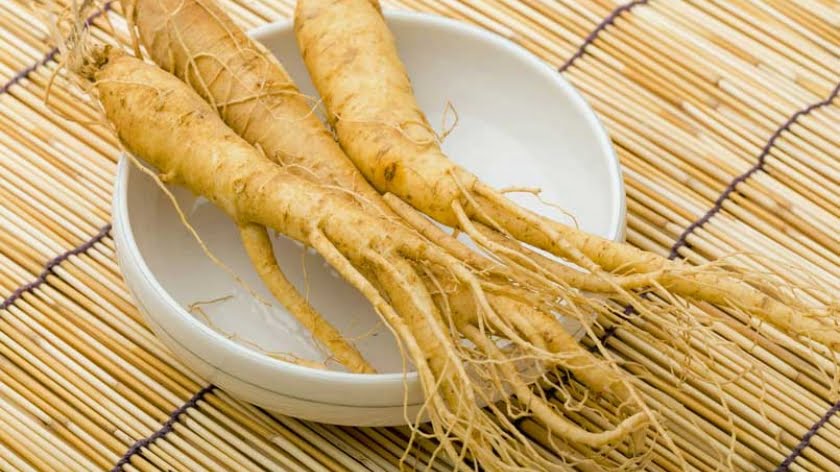Is Fermented Blueberry the Most Powerful Tonic?
Story at-a-glance
- Blueberry vinegar was proven to help reduce the breakdown of acetylcholine in mice brains, while increasing brain-derived neurotrophic factor, leading researchers to believe fermented blueberries may have health benefits for people with dementia
- Studies validate fermented blueberry drinks to be effective in preventing diabetes and obesity in mice predisposed to those conditions, reducing their glycemia levels by 35 percent in just three days
- Blueberry extract in combination with radiation therapy reduced the number of cervical cancer cells by 70 percent, compared to a 20 to 25 percent reduction when either therapy was used alone
- Blueberries, rich in vitamins K1, C and B6 are also an excellent source of manganese and fiber and are packed with antioxidant and anti-inflammatory properties known to help reduce your risk for cancer, diabetes, heart disease and vision loss
Blueberries are often called a “superfood,” and for good reason. They are packed with antioxidants that help your body keep free radicals in check and fight inflammation. Along with other berries, blueberries are among your best dietary sources of bioactive compounds like anthocyanins, flavonols, ellagic acid and resveratrol. Furthermore, blueberries are an excellent source of vitamins K1, C and B6, as well as manganese and fiber.
While the benefits of the whole berry are well-known — particularly as it relates to antiaging, blood sugar, heart disease and vision health — research suggests fermented blueberries may be even more potent and beneficial. In animal studies, fermented blueberry juice has been shown to help with memory loss, cancer, diabetes and obesity. The research suggests cultured blueberry juice is a powerful tonic worthy of your time and attention.
Can Blueberry Vinegar Help With Memory Loss?
According to Alzheimer’s Disease International,1 an estimated 50 million people worldwide are living with dementia, and more than 9.9 million new cases are diagnosed annually. Assuming the rate of incidence continues to rise, 75 million people are expected to suffer from dementia by 2030. These statistics underscore the need for new and better treatment strategies for cognitive disorders such as dementia and Alzheimer’s disease.
A study2,3 published in the Journal of Agricultural and Food Chemistry involving lab mice with amnesia suggests blueberry vinegar, which is produced by fermenting fresh blueberries, effectively improves short-term memory. After having amnesia induced through a drug called scopolamine, the mice were given either 120 milligrams per kilogram (mg per kg) of blueberry vinegar or 120 mg per kg of blueberry extract every day for a week. Researchers noted the following results in the mice given blueberry vinegar:
- A reduction in the breakdown of acetylcholine in their brains, which is significant because people with Alzheimer’s disease generally have low levels of acetylcholine, and blocking acetylcholine receptors is known to disrupt learning and memory
- An increase in brain-derived neurotrophic factor, a protein known for its role in nerve cell growth and maintenance
Fermentation Boosts Bioactive Benefits
While previous research highlighted natural compounds (such as those in blueberries) as beneficial in helping reduce dementia-related memory loss, the current work emphasizes the role fermentation plays in increasing their bioactivity. The study authors said, “Fermented products, such as vinegar, might act to preserve the phenolic compounds that are easily oxidized during food processing and that are impacted by factors such as maturity, storage and processing.”4
The mice consuming blueberry vinegar performed better on the two tests used to check their memory. Based on the outcomes, the researchers stated, “These findings also strongly suggest blueberry vinegar could be a useful functional material or food to provide the neuroprotective action against oxidative damage in hippocampal tissue.”5
More research is needed to confirm the usefulness of blueberry vinegar with respect to memory problems in people with dementia. Along those lines, judging blueberry vinegar to be less risky than taking toxic dementia drugs, the Los Angeles Times commented:6
“Drugs that stop the breakdown of acetylcholine have been invented, but are deemed unsafe for regular use. They don’t last very long, and excess consumption could be toxic to the liver. Blueberry vinegar, however, seemed to have a similar effect without any of the drawbacks of the dangerous drugs.
Researchers agree further testing is necessary before people start rushing to buy the fermented fruits; but since there’s really no drawback … blueberry vinegar could be a great superfood for boosting your brain health as you age.
[S]o if you’re crafting your own [vinaigrette] or looking for a healthy way to dress your salad, blueberry vinegars could be a great ingredient. No food has yet been found that can fully reverse cognitive decline, but it’s comforting to know there are some memory-boosting foods out there.”
Fermented Blueberry Juice Shown to Have Antidiabetic Effects
Animal research suggests cultured blueberry drinks may also be effective in preventing diabetes and obesity. In one such study,7researchers at the University of Illinois developed an alcohol-free blueberry-blackberry “wine” and tested its antidiabetic effects on lab mice on a high-fat diet. Specifically, scientists wanted to see if the phenolic compounds from the fermented berry beverage would reduce diet-induced obesity and hyperglycemia in the mice.
Earlier on, the team had found berries fermented at low temperatures produced higher concentrations of anthocyanins — phenolic flavonoid pigments that give them their bright colors. Anthocyanins are known to increase insulin sensitivity, decrease blood glucose levels and promote insulin secretion.
About the results, Elvira de Mejia, Ph.D., professor of food science, University of Illinois, stated:8 “We saw a reduction of glucose in the blood … markers of inflammation went down too. That’s very, very, important. With obesity, less fat means less inflammation and less oxidative stress.”
Research9,10 featured in the International Journal of Obesity made use of a “biotransformed” blueberry juice fermented using Serratia vaccinia, a bacterium found on the fruit’s skin. Lab mice, previously bred to be leptin-resistant, which predisposed them to diabetes, high blood pressure, insulin resistance and obesity, were treated with either the fermented juice or regular blueberry juice for three days.
“Consumption of fermented blueberry juice gradually and significantly reduced high blood glucose levels in diabetic mice,” said lead study author Tri Vuong. “After three days, our mice subjects reduced their glycemia levels by 35 percent.”11
Notably, compared to the control group, the mice drinking the fermented juice ate less and gained less weight. “Results of this study clearly show biotransformed blueberry juice has strong anti-obesity and antidiabetic potential,” stated senior author Pierre Haddad, Ph.D., professor of pharmacology, University of Montreal.12
A 2017 study13 published in BMC Complementary and Alternative Medicine sought to isolate the active compounds within fermented blueberry juice believed to contribute to its antidiabetic activity. Overall, catechol was found to be the most notable of the compounds discovered. As noted by the authors:
“[T]he results of this study confirmed that fermentation of blueberry juice confers it antidiabetic potential in liver and skeletal muscle cells through the regulation of key hepatic enzymes implicated in gluconeogenesis and glycogen synthesis, and the enhancement of skeletal muscle glucose uptake.
Using a phytochemical fractionation approach, we now demonstrate that this activity resides principally in phenolic fractions and can be attributed, at least in part, to chlorogenic acid, gallic acid, protocatechuic acid and catechol.”
Blueberry Extract Shown to Kill Toxic Cervical and Mammary Cells
A study presented in Pathology and Oncology Research14,15 reflects the usefulness of blueberry extract in the fight against cancer, particularly with respect to cervical cancer. Researchers have discovered adding blueberry extract to radiation therapy can significantly improve the efficacy of the treatment.
According to the American Cancer Society,16 more than 13,000 new cases of invasive cervical cancer will be diagnosed this year in the U.S., and nearly 4,200 American women will die of the disease. Radiation therapy continues to be the primary treatment method for cervical cancer. Unfortunately, the high-energy radiation used to eradicate the cancer cells also damages healthy cells in the process.
Lead author Dr. Yujiang Fang, Ph.D., academic pathologist and assistant professor, department of microbiology and immunology, Des Moines University, Iowa, and his team sought to determine whether blueberry extract could be used as a radiosensitizer — a compound useful for making cancer cells more vulnerable to radiation. Previously, Fang and his colleagues found resveratrol, a compound found in grapes and red wine, to be effective in sensitizing prostate cancer cells to radiation.17
In the current study, blueberry extract was tested alone and in combination with radiation therapy. The extract alone reduced cancer cells by 25 percent, whereas radiation alone decreased cancer cells by just 20 percent.
However, when blueberry extract and radiation were combined, the number of cancer cells dropped by about 70 percent. As such, Fang believes not only does blueberry extract make cervical cancer cells more responsive to radiation, but it may also reduce abnormal cell growth that fuels cancer development. “Along with reducing cell proliferation, the extract also ‘tricks’ cancer cells into dying,” Fang said.18
Another study,19 detailed in the Journal of Translational Medicine, evaluated the effects of a fermented blueberry drink on breast cancer stem cell development using lab mice.
The researchers stated that polyphenol enrichment of blueberry juice through fermentation “increases its chemopreventive potential by protecting mice against tumor development, inhibiting the formation of cancer stem cells and reducing lung metastasis.” As such, it is believed a fermented blueberry drink may represent an alternative medicine therapy in the treatment of breast cancer.
Other Health Benefits Associated With Blueberries
A 1-cup serving of blueberries provides the following percentages of your recommended dietary allowance of:20
- Vitamin K1: 36 percent
- Vitamin C: 24 percent
- Vitamin B6: 5 percent
- Manganese: 25 percent
- Fiber: 14 percent (3.6 grams)
Blueberries also contain decent amounts of vitamins B1 (thiamin), B2 (riboflavin) and E, as well as calcium, magnesium, phosphorus and potassium. In addition to their vitamin and mineral content, the phytonutrients in blueberries provide important health benefits.
Blueberries pack tremendous antioxidant power, which helps your body keep free radicals in check and fight inflammation. Along with other berries such as cranberries and strawberries, blueberries are among the best dietary sources of bioactive compounds, such as anthocyanins, flavonols, ellagic acid and resveratrol. Studies indicate blueberries reduce your risk of:21,22,23
- Cancer: Besides cervical cancer, blueberries have been shown to be effective in the fight against cancers of the breast, colon, esophagus and small intestine, most likely due to their antioxidant and anti-inflammatory properties
- Eye problems: The antioxidants in blueberries are also known to help prevent or delay age-related eye problems and vision loss, including cataracts, dryness, infections, macular degeneration and myopia
- Excessive aging: Due to their high antioxidant content, blueberries can help reduce the signs of aging such as age spots, hair loss and wrinkles
- High blood sugar: Results from three prospective longitudinal cohort studies,24 involving more than 187,000 participants, concluded greater consumption of specific whole fruits, such as blueberries, is significantly associated with a lower risk of Type 2 diabetes
- Urinary tract infections: Blueberries and cranberries contain an antioxidant called epicatechin, known to inhibit the growth of bacteria in the lining of your bladder that causes urinary tract infections
Blueberries Help Protect Your Heart
Blueberries are well-known for helping protect your heart and lower your blood pressure. Past research has revealed women ages 25 to 42 who ate more than three servings of blueberries (and strawberries) per week had a 32 percent lower risk of having a heart attack.25Anthocyanins are the primary agents responsible for protecting your heart, and they are particularly known to benefit the endothelial lining of your circulatory system, possibly preventing plaque buildup in your arteries, as well as promoting healthy blood pressure.
Other research has shown these antioxidants to protect against heart disease by reducing oxidative stress and inflammation, while enhancing capillary strength and inhibiting platelet formation.26
A study27 involving postmenopausal women suggests blueberry consumption positively affects blood pressure. The participants, suffering from either prehypertension or hypertension, received a placebo powder or freeze-dried blueberry powder equivalent to about 1 cup of fresh berries daily for eight weeks. Despite no significant changes in the placebo group, the women supplementing with blueberries realized a 5 to 6 percent drop in both their systolic and diastolic blood pressure readings.
Make Your Own Blueberry Vinegar
As demonstrated in the video above, you can easily make blueberry vinegar at home using just three ingredients: 1 cup of fresh blueberries, 2 cups of vinegar and sweetener equivalent to 2 tablespoons sugar. For the best results, be sure to use organic ingredients. Blueberry vinegar is useful as a salad dressing or marinade, especially for fish.
While Blueberries Are Beneficial, Watch Your Total Fructose Intake
Although blueberries are undoubtedly a healthy food, you will want to moderate your intake of them. One cup of blueberries contains approximately 15 grams of fructose. My standard advice is to keep your total fructose consumption below 25 grams per day, including fructose from fruit. If you have a chronic disease such as diabetes, heart disease, high blood pressure or insulin resistance, you’d be wise to restrict your fructose to 15 grams or less per day until your condition improves.
Also keep in mind that blueberries are on the Environmental Working Group’s list of 48 fruits and vegetables containing higher amounts of pesticide residue.28 Both domestic and imported blueberries sold within the U.S. are sprayed with toxic pesticides, so be sure to buy organic.
Sources and References
- 1 Alzheimer’s Disease International, About Dementia
- 2 Journal of Agricultural and Food Chemistry December 20, 2017 [ePub ahead of publication]
- 3, 4 Medical News Today December 20, 2017
- 5 Daily Mail December 22, 2017
- 6 Los Angeles Times January 2, 2018
- 7 The Journal of Nutritional Biochemistry May 2016; 31: 45-59
- 8 University of Illinois Extension August 2, 2016
- 9 International Journal of Obesity 2009; 33: 1166-1173
- 10, 11, 12 ScienceDaily September 2, 2009
- 13 BMC Complementary and Alternative Medicine March 4, 2017; 17(138)
- 14 Pathology and Oncology Research September 30, 2017 [ePub ahead of publication]
- 15, 18 Medical News Today January 3, 2018
- 16 American Cancer Society January 4, 2018
- 17 Cancer Science 2012; 103(6): 1090–1098
- 19 Journal of Translational Medicine January 14, 2016; 14(13)
- 20 SELF Nutrition Data, Blueberries raw Nutrition Facts & Calories
- 21 Organic Facts October 6, 2017
- 22 Medical News Today September 5, 2017
- 23 Yao Xue Xue Bao April 2010; 45(4): 422-9
- 24 BMJ 2013; 347: f5001
- 25 Circulation January 15, 2013;127(2):188-96
- 26 Journal of Biomedicine and Biotechnology December 1, 2004; 2004(5): 306-313
- 27 Journal of the Academy of Nutrition & Dietetics March 2015; 115(3): 369–377
- 28 Environmental Working Group, All 48 Fruits and Vegetables with Pesticide Residue Data
Source: Mercola







